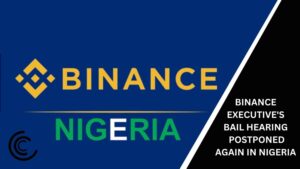Key Takeaways:
- In response to the cryptocurrency bear market, Singapore’s largest bank, DBS, plans to increase its cryptocurrency and digital asset offers to 300,000 new clients.
- The decline of the cryptocurrency market, according to Piyush Gupta, CEO of DBS since 2009, demonstrated that existing, authorized financial institutions, not simply start-ups, should provide products like digital asset trading for regular investors.
Despite the bear market in cryptocurrency, Singapore’s largest bank says it intends to develop its digital exchange and provide services to more than its 300,000 wealthy clientele in Asia.
In a recent interview, DBS CEO Piyush Gupta stressed the need of reputable financial institutions to enter the market for digital asset services due to recent losses suffered by retail investors in the crypto market crisis.
The Monetary Authority of Singapore granted the bank’s brokerage division a cryptocurrency license last year, granting its rich and institutional clients invitation-only access to its DBS Digital Exchange.
According to Gupta, who spoke to the Financial Times, “people expect us to be a pioneer in the field and to continue to push boundaries,” DBS can set up “guardrails” and protections that will result in “better outcomes” for investors.
Gupta stated that although the bank has fewer than 1,000 members in the industry, it would soon offer the service to 300,000 of its wealthy clients throughout Asia, including personal banks, authorized dealers, multiple exchanges, and funds through its DBS mobile banking app.
Temasek, the government investment firm, owns over 30% of DBS, but the bank’s intentions to grow come after a difficult year in Singapore’s cryptocurrency market, which saw firms like Three Arrows Capital declare bankruptcy.
In addition to falling values globally, this year’s failure of numerous well-known crypto firms, notably Singapore-based Three Arrows and Terraform Labs, has raised concerns about MAS’s strategy.
As a result, MAS managing director Ravi Menon declared last week that the regulator would take measures to safeguard retail investors while reiterating the city’s digital asset plan.
Menon said, “Many clients still seem irrationally naive about the risks of cryptocurrency trading despite early, determined attempts to avoid consumer harm,” on Monday at the Green Shoots Seminar.
However, Menon argues that an outright ban is unlikely to be successful because Singaporeans may access the market “with just a mobile phone.”
Gupta remarked in an interview with the Financial Times on the difficulties facing Singapore’s crypto regulators: “On the one hand, we want to be a worldwide crypto hub. On the other hand, we’re also very concerned about our own citizens losing money on this risky asset class.”
According to Gupta, the losses incurred by small-scale investors in the Bitcoin meltdown highlight the significance of more reputable financial institutions providing services for digital assets.
Between April and the end of June, the total number of deals on the DBS Digital Exchange more than doubled, while the quantity of bitcoin purchased on the exchange nearly quadrupled. Ether, another well-liked token, also had a 65 percent growth in supply during that time.











